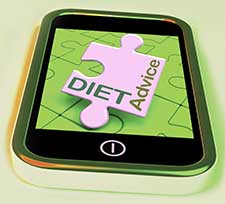Consumers’ Diet and Nutrition IQs Could Use a Boost
WELLNESS
Just how much do consumers know about matters of diet and health? Not as much as they think they do, according to a recent survey of more than 500 registered dietitians conducted by nutrition trade magazine Today’s Dietitian and Pollock Communications, a public relations agency focused on health and wellness issues.
Asked about trends for 2014, two-thirds (67%) of the dietitians surveyed said that in their experience, U.S. consumers’ nutrition information is based not on peer-reviewed research but on personal beliefs and half-truths. Three-quarters of the dietitians (75%) predicted that the public will be confronted with an oversupply of dietary misinformation this year.
 Consumer trend data from research firm HealthFocus International, St. Petersburg, Fla., provides support for some of the insights into diet and health behaviors the dietitians identified. Consumers are inundated with information about diet/nutrition from sources including celebrity doctors, bloggers, and point-of-purchase product rating systems, but all of that doesn’t always result in better-informed shoppers, according to Barbara Katz, President, HealthFocus International. “Because all of these sources are direct to consumers, it is very easy for shoppers to get information, which means it is very easy for them to get the wrong information or incomplete information,” says Katz. “With the available information pouring out to shoppers from every screen, they may not have a lot of time to absorb a great amount of detail,” she continues. “So we cannot assume that they know more than they used to know just because it is now available.”
Consumer trend data from research firm HealthFocus International, St. Petersburg, Fla., provides support for some of the insights into diet and health behaviors the dietitians identified. Consumers are inundated with information about diet/nutrition from sources including celebrity doctors, bloggers, and point-of-purchase product rating systems, but all of that doesn’t always result in better-informed shoppers, according to Barbara Katz, President, HealthFocus International. “Because all of these sources are direct to consumers, it is very easy for shoppers to get information, which means it is very easy for them to get the wrong information or incomplete information,” says Katz. “With the available information pouring out to shoppers from every screen, they may not have a lot of time to absorb a great amount of detail,” she continues. “So we cannot assume that they know more than they used to know just because it is now available.”
In addition, despite the fact that about two-thirds of the U.S. population is overweight or obese, there appears to be a growing comfort level among some of those carrying extra pounds. Call it overweight and okay with it. Forty-four percent of the dietitians said that more consumers are complacent about their unhealthy weight.
“I think the concern from a dietitian standpoint is that people aren’t associating body weight with their health as much as they should be,” says Jenna A. Bell, Ph.D., Senior Vice President and Director of Food & Wellness at Pollock Communications, New York, N.Y. “We’re becoming desensitized to it—overweight is the new normal weight.”
Katz uses the label “comfortably overweight” to describe that growing group of consumers “who have justified it and accepted it” vs those consumers who are constantly dieting or who show some level of concern about weight loss. She cites data from the HealthFocus 2012 U.S. Trend Study in which 41% of obese shoppers noted that one of their barriers to better health is the fact that “there is nothing urgent driving them to make changes.” In other words, Katz explains in the introduction to the report, “unless there is an obesity-related illness that is not under control, the obesity itself is not considered an urgent situation.”
How can this unhealthy perspective be changed? There’s no single answer, Katz stresses. For one thing, she notes, overweight/obese consumers need better nutritional knowledge, but they also need ongoing emotional support for the process of making lifestyle changes. She notes, for example, that often health insurance will not cover the cost of a weight management program, but it will pay for bariatric surgery—a more invasive solution to the problem.
As for those who are attempting to lose weight—or considering weight loss—the highest-profile diet approaches in 2014 will be those that involve avoiding wheat such as those based on The Paleo Diet or Wheat Belly books or simply a general embrace of a gluten-free lifestyle, more than half of the dietitians predicted.
Going gluten-free isn’t necessarily unhealthy, according to Bell, but she notes that it does prompt some concerns among health professionals. “Without a clinical disorder diagnosis [i.e., celiac disease or gluten sensitivity],” she points out, “there is not any evidence to associate benefits with the elimination of wheat or gluten from the diet.” She adds that “what we find is that people don’t stick with it” and “that opens the door to the next fad [diet].”
Katz notes that issues of diet and health should not be addressed in a vacuum, but rather in the context of bigger picture trends like changing demographics, technology advances that make health and nutrition information more readily available, and the growing prevalence of diabetes. In other words, perhaps whatever the year’s latest trends are, the challenge of improving Americans’ approach to diet and health remains a multifaceted one without a single simple solution.
 Mary Ellen Kuhn is Executive Editor
Mary Ellen Kuhn is Executive Editor
of Food Technology magazine ([email protected]).
